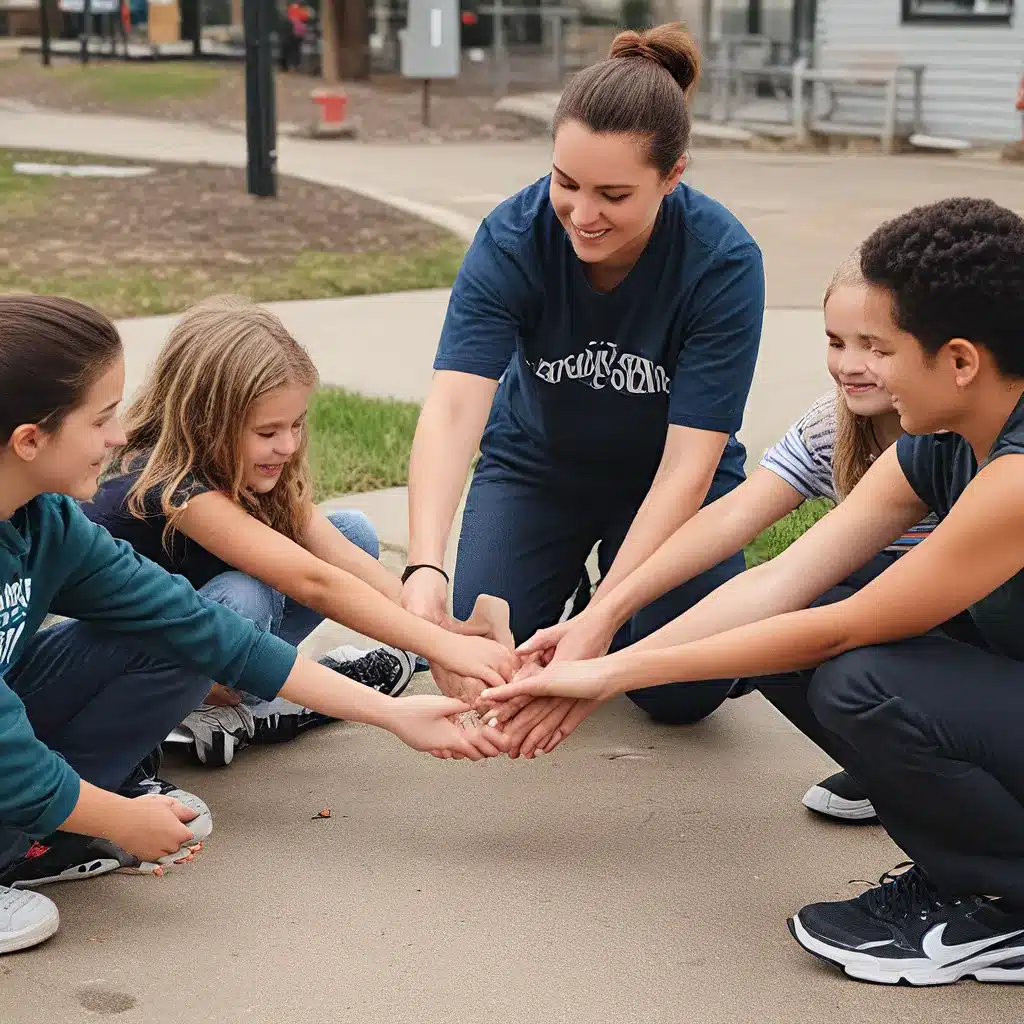
Bridging the Gap: Empowering Students Through Character Education
As I stroll through the bustling streets of Bridge City, I can’t help but notice the vibrant energy that permeates the community. It’s a place where people from all walks of life come together, each with their own unique stories and experiences. But what truly sets this city apart is its unwavering commitment to nurturing the character and values of its future leaders – the students.
In a world that can often feel polarized and disconnected, Bridge City has taken a bold step in cultivating compassion and empathy within its educational system. Through a comprehensive character education initiative, the city is not only shaping the minds of its young people but also transforming the very fabric of the community.
The Power of Words: Fostering a Culture of Kindness
At the heart of Bridge City’s character education program is the recognition that the words we use have the power to shape our actions and our relationships. As I sit down with the principal of Bridge City Elementary, Ms. Sarah Harding, she explains the driving force behind their innovative approach.
“We believe that words really do count,” Ms. Harding says, her eyes sparkling with enthusiasm. “By providing our students with a common language and strategies for recognizing and responding to unkind behaviors, we’re empowering them to become active agents of change in their own lives and in their community.”
The program, aptly named “Words Count,” is built upon research-based tools that encourage students, parents, and teachers to work together in creating a culture of inclusion and support. Through monthly lessons and interactive activities, students learn to identify and address bullying, teasing, and exclusion, transforming bystanders into “upstanders” who are willing to stand up for one another.
“It’s not about confrontation,” Ms. Harding emphasizes. “The focus is on equipping our students with the skills to support their peers in a positive and effective way, helping the targeted individuals feel less alone and more empowered to stand up for themselves.”
Seeing Through New Eyes: Cultivating Empathy
As I delve deeper into the character education initiatives in Bridge City, I’m struck by the emphasis on developing empathy – the ability to recognize and understand the feelings of others. Through interactive lessons and thought-provoking literature, students are encouraged to step into the shoes of their peers, to feel the weight of their experiences, and to respond with genuine compassion.
One such initiative, “Stand in My Shoes,” explores the power of empathy through the eyes of a young girl named Emily. As Emily learns the meaning of this powerful concept, she begins to see the world in a new light, recognizing the emotional struggles of those around her.
“Empathy is the foundation for building meaningful relationships and cultivating a sense of community,” explains Ms. Harding. “When our students can truly understand and empathize with their peers, it opens up a world of possibilities for positive change.”
A Ripple Effect: Transforming the Community
The effects of Bridge City’s character education initiatives extend far beyond the classroom walls. As students internalize the lessons of compassion, kindness, and empathy, they become ambassadors of change, spreading these values throughout the community.
One powerful example is the story of Mr. Peabody, a beloved elementary school teacher and baseball coach. When rumors began to spread through the small town, Mr. Peabody took the opportunity to impart a poignant lesson about the importance of choosing one’s words carefully.
“Mr. Peabody’s Apples” has since become a staple in the character education curriculum, inspiring students to reflect on the consequences of their language and the impact it can have on others.
“We’ve seen a ripple effect throughout the community,” Ms. Harding shares, a proud smile on her face. “As our students become more attuned to the needs of those around them, they’re starting to initiate their own acts of kindness and service, strengthening the bonds that tie our community together.”
Embracing the Journey: Challenges and Triumphs
Of course, the road to cultivating compassion and character is not without its challenges. Ms. Harding acknowledges the ongoing efforts required to sustain the momentum and ensure that the character education initiatives remain impactful and relevant.
“It’s a continuous journey,” she says, her voice tinged with determination. “We’re constantly evaluating our programs, seeking feedback from students and parents, and adapting our approach to meet the evolving needs of our community.”
One such challenge has been the integration of the character education curriculum across all grade levels, ensuring that the lessons and themes build upon each other in a cohesive and meaningful way.
“It’s not just about delivering a one-time lesson,” Ms. Harding explains. “We’re working to weave these principles into the fabric of our school, creating a seamless and holistic approach that empowers our students to carry these values with them throughout their lives.”
A Brighter Future: Empowering the Next Generation
As I prepare to leave Bridge City, I can’t help but feel inspired by the city’s unwavering commitment to character education. The students I’ve met exude a sense of purpose and confidence, their eyes shining with the knowledge that they have the power to make a difference.
“We believe that by investing in the character and values of our young people, we’re not just shaping their individual lives,” Ms. Harding says, her voice brimming with conviction. “We’re building a foundation for a brighter, more compassionate future – one where the citizens of Bridge City lead with empathy, kindness, and a deep respect for one another.”
As I step out onto the bustling streets, I can’t help but feel a renewed sense of hope. This city, with its unwavering dedication to cultivating compassion, is a shining example of what’s possible when a community comes together to empower its next generation. And as I reflect on my time here, I’m reminded that the true measure of a society lies not in its material wealth, but in the character and values of its people.


